Picturesque Villages Found on Howardian Hills Walks
Discover the enchanting beauty of the North Yorkshire countryside with my comprehensive guide to Howardian Hills walks. The Howardian Hills Area of Outstanding Natural Beauty, spanning 79 square miles, boasts a unique landscape with rolling countryside, arable and pasture fields, scenic villages, and historic country houses.
This guide provides you with all the information you need to explore this captivating region, with detailed descriptions of several walks that showcase the area’s picturesque charm and rich history. Below is a brief overview of three featured walks, with a full list available further down the page.
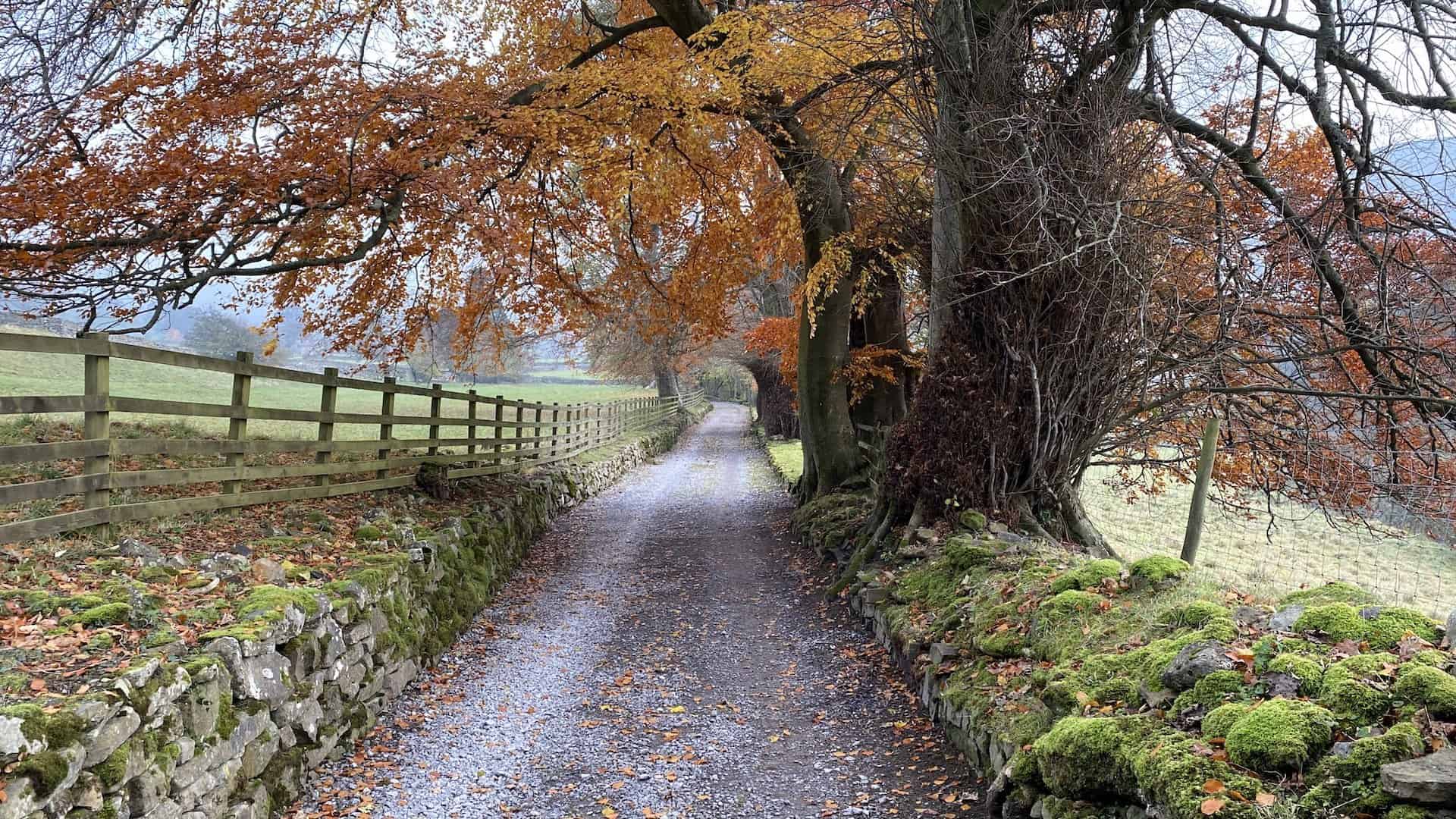
Howardian Hills Walks: My Three Favourites
My first featured walk, the Castle Howard walk, is a 12-mile ramble that takes you from Coneysthorpe to Welburn, via the historic Kirkham Priory. This journey offers breathtaking views and an opportunity to immerse yourself in the history and beauty of the Castle Howard grounds. As you traverse the enchanting landscape, you will encounter picturesque villages and stunning countryside vistas that are sure to leave a lasting impression.
Embark on a memorable journey with my second featured walk, the Coneysthorpe walk. This 15-mile route showcases the stunning Howardian Hills and the magnificent Castle Howard. With its tranquil pathways and idyllic scenery, this walk provides the perfect escape into the heart of the English countryside. As you meander through the lush landscape, you’ll find yourself surrounded by nature’s beauty and the serenity that accompanies it.
My third example, the Hovingham walk, is a delightful 9-mile adventure that takes you through the picturesque Howardian Hills and the charming village of Terrington. Starting in the quaint village of Hovingham, you’ll follow the Ebor Way, a popular walking route, and venture into the serene South Wood. This walk offers a rich experience filled with natural beauty, captivating landscapes, and a glimpse into the history and charm of the region.
These three walks are just a taste of the many Howardian Hills walks available in this enchanting region. Explore the full list below this introduction to find your perfect adventure and create unforgettable memories in the spectacular North Yorkshire countryside.
Scenic Walks in the Howardian Hills
About the Howardian Hills
The Howardian Hills is an Area of Outstanding Natural Beauty (AONB) located between the Yorkshire Wolds, the North York Moors National Park, and the Vale of York. Named after the Howard family, who still own local lands, this unique area stretches from Helmsley and Coxwold, on the edge of the North York Moors National Park, down to Kirkham Priory and the River Derwent.
Landscape and Geology
Characterised by soft, rolling hills with a tapestry of arable fields, pasture, and woodland, the Howardian Hills form 79 square miles of well-wooded undulating countryside. The 170 metre (558 feet) high ridges are a southern extension of the rocks of the Hambleton Hills in the North York Moors. Jurassic limestone, pastures, and extensive woodland overlook the agricultural plains below, while the River Derwent cuts through the hills in the Kirkham Gorge, a deep winding valley.
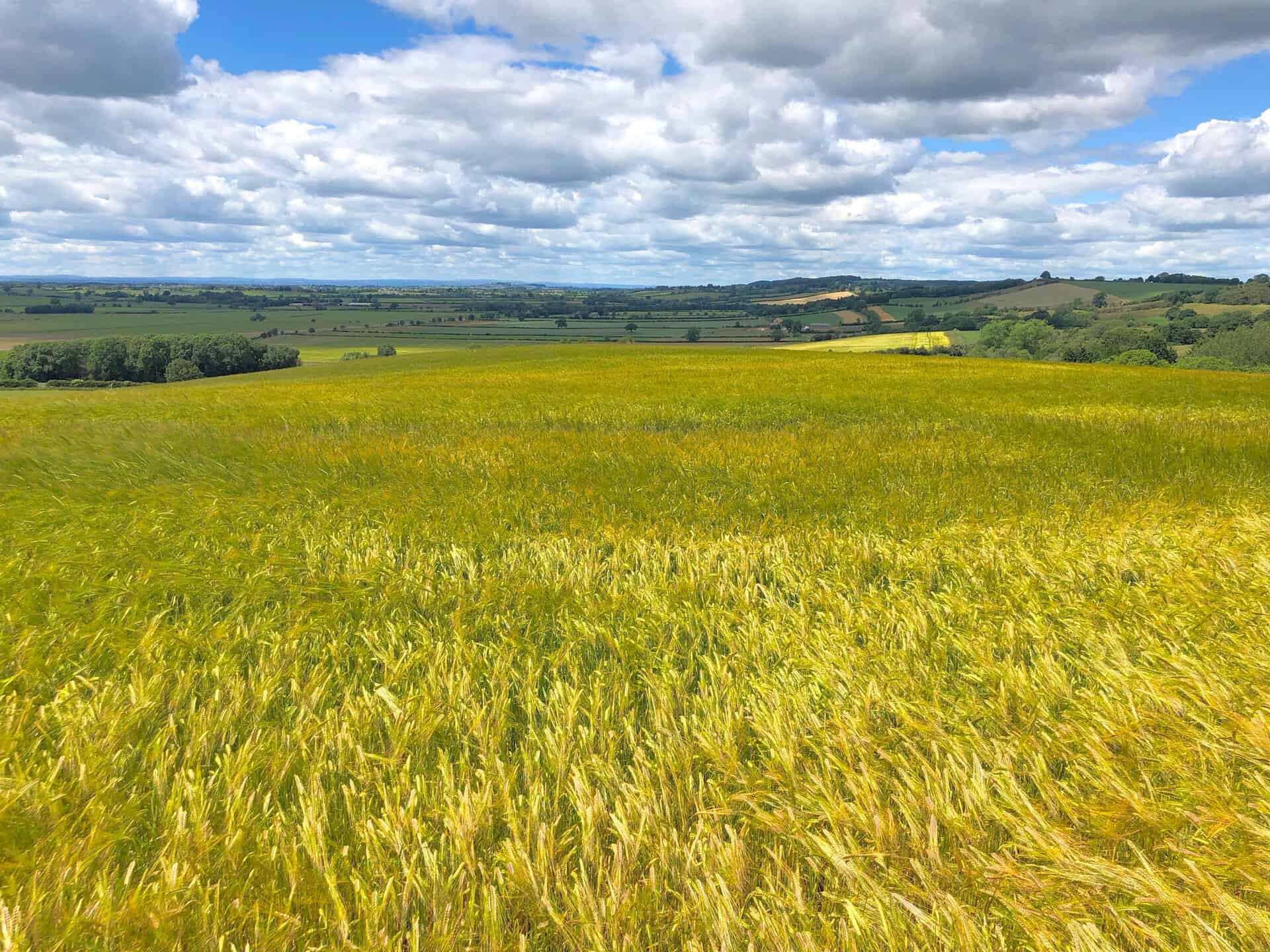
Notable Estates and Villages
Large country houses with their designed grounds are a prominent feature of the Howardian Hills. Owners of Castle Howard, Hovingham Hall, Newburgh Priory, Nunnington Hall, and Gilling Castle have moulded the landscape over many centuries. Attractive and individual villages are dotted throughout the AONB, offering food, accommodation, and an excellent base for exploring. Notable locations include Ampleforth Abbey and College, situated within the area.
Biodiversity and Wildlife
The Howardian Hills AONB is a key area for several nationally important Biodiversity Action Plan (BAP) Priority habitats, including lowland broadleaved woodland, wood pasture, veteran trees, limestone, neutral grasslands, and fen meadows. Characteristic species include brown hare, lapwing, tree sparrow, and barn owl, as well as several local rarities such as knapweed broomrape and baneberry.
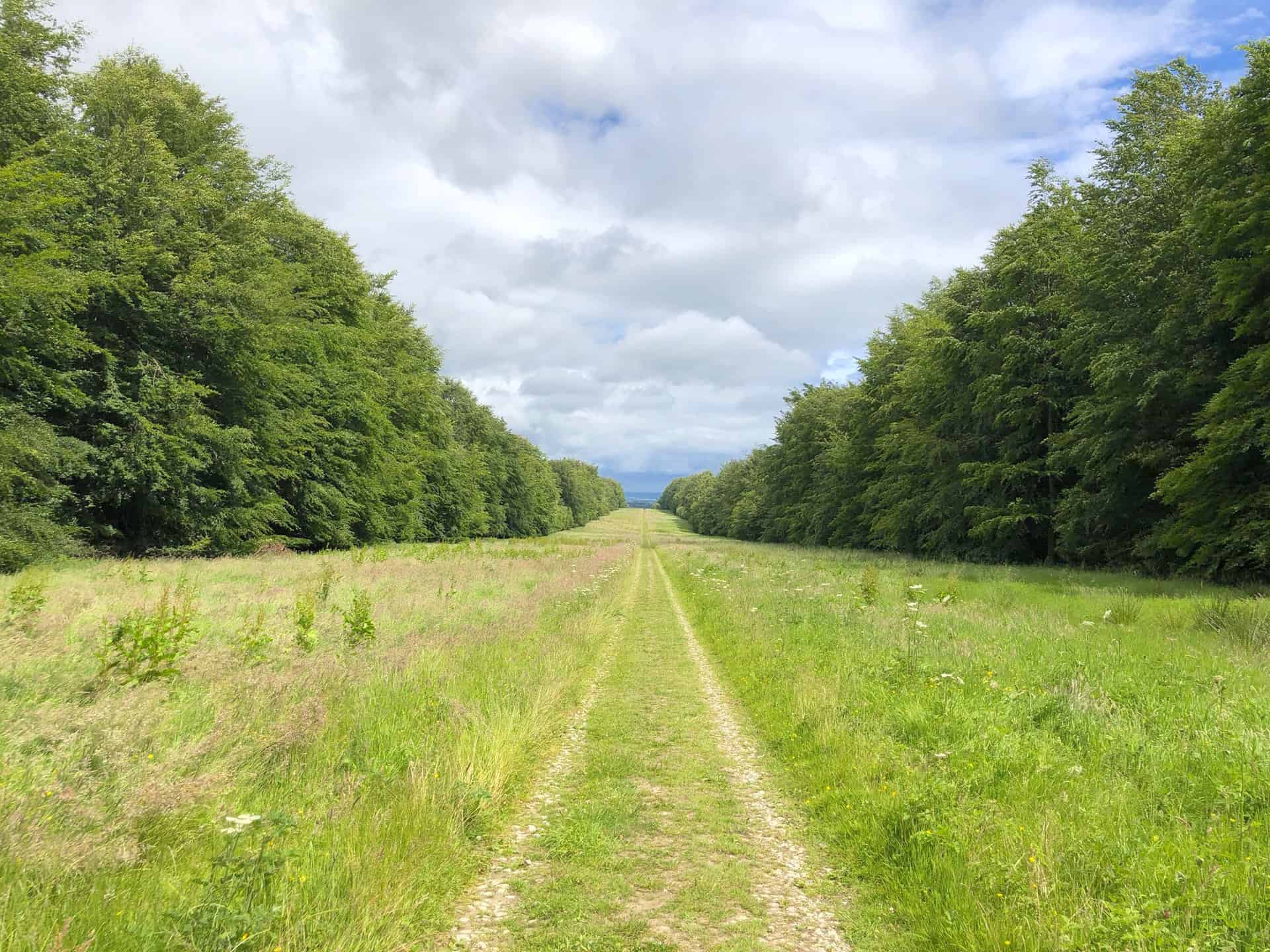
Archaeological and Historical Significance
The remarkable heritage of the area goes back further than the 18th-century designed landscapes, with medieval castles and monasteries. The concentration of archaeological and historic features, including Iron Age earthworks, grand houses, and designed landscapes, contribute to the dramatic landscape, offering a rich tapestry of sights to discover on my Howardian Hills walks.
Special Qualities of the Howardian Hills AONB
Unusual Landform
The Howardian Hills is the only area of Jurassic limestone landscape in the north of England to be designated as an AONB. The deeply incised Kirkham Gorge, a unique glacial overflow channel, is of great scientific importance. These geological features contribute to the area’s distinct character and are an important factor in its AONB designation.
Richly Varied Landscape
The landscape of the Howardian Hills is composed of a complex system of ridges, hills, and valleys. This varied topography supports a diverse range of habitats, such as woodland, rolling arable fields, small-scale pasture, fens, hedgerows, and stone walls. Formal parkland and scattered settlements further enhance the area’s richly varied landscape, making it a distinctive and visually appealing destination.
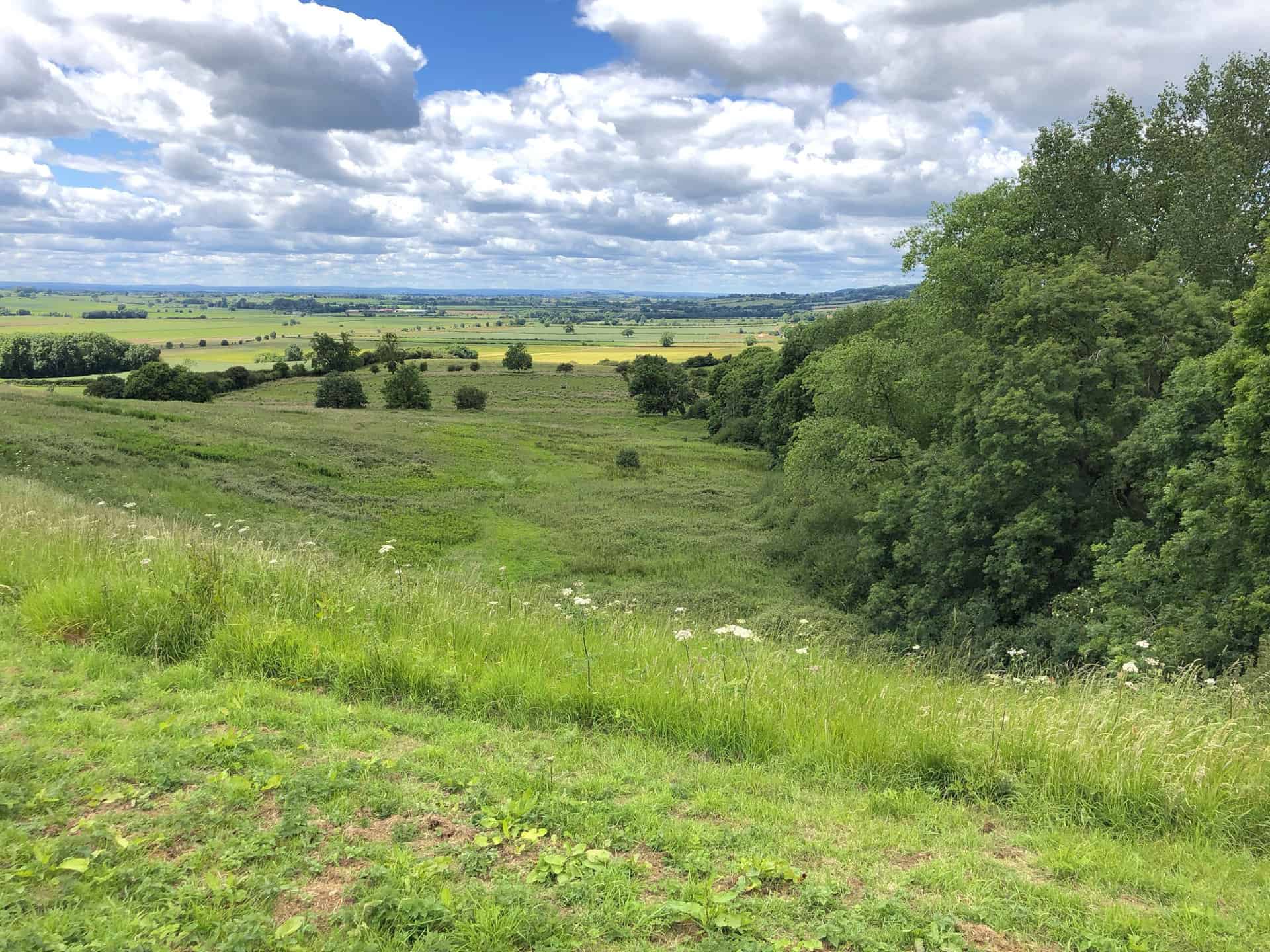
High Visual Quality
The variety of landforms and land use in the Howardian Hills creates a contrast in scale, colour, texture, and form. Historic houses, extensive woodlands, broad sweeping views, unspoilt farming landscapes, and traditional building styles all contribute to the area’s high visual quality. This aesthetic appeal is a key factor in the AONB designation and makes the Howardian Hills a popular destination for visitors, something I’ve personally experienced through my Howardian Hills walks.
Remarkable Heritage
The Howardian Hills boast a wealth of archaeological and historical features, such as Iron Age earthworks, medieval castles, and monasteries. The grand houses and designed landscapes, including Castle Howard, Newburgh Priory, Hovingham Hall, Gilling Castle, and Nunnington Hall, add to the area’s dramatic landscape. This remarkable heritage not only provides a fascinating insight into the region’s past but also contributes to its national significance.
Important Wildlife Resources
The AONB contains a section of the unique River Derwent, which supports outstanding wild plants and animals. Other habitats of national importance include fens and relatively extensive remnants of Ancient Semi-Natural Woodland. The combination of these special qualities in the Howardian Hills AONB creates a landscape of national significance. The area’s unusual landform, richly varied landscape, high visual quality, remarkable heritage, and important wildlife resources make it a unique and valuable destination for visitors and an essential area for conservation efforts, all of which can be fully appreciated on my Howardian Hills walks.
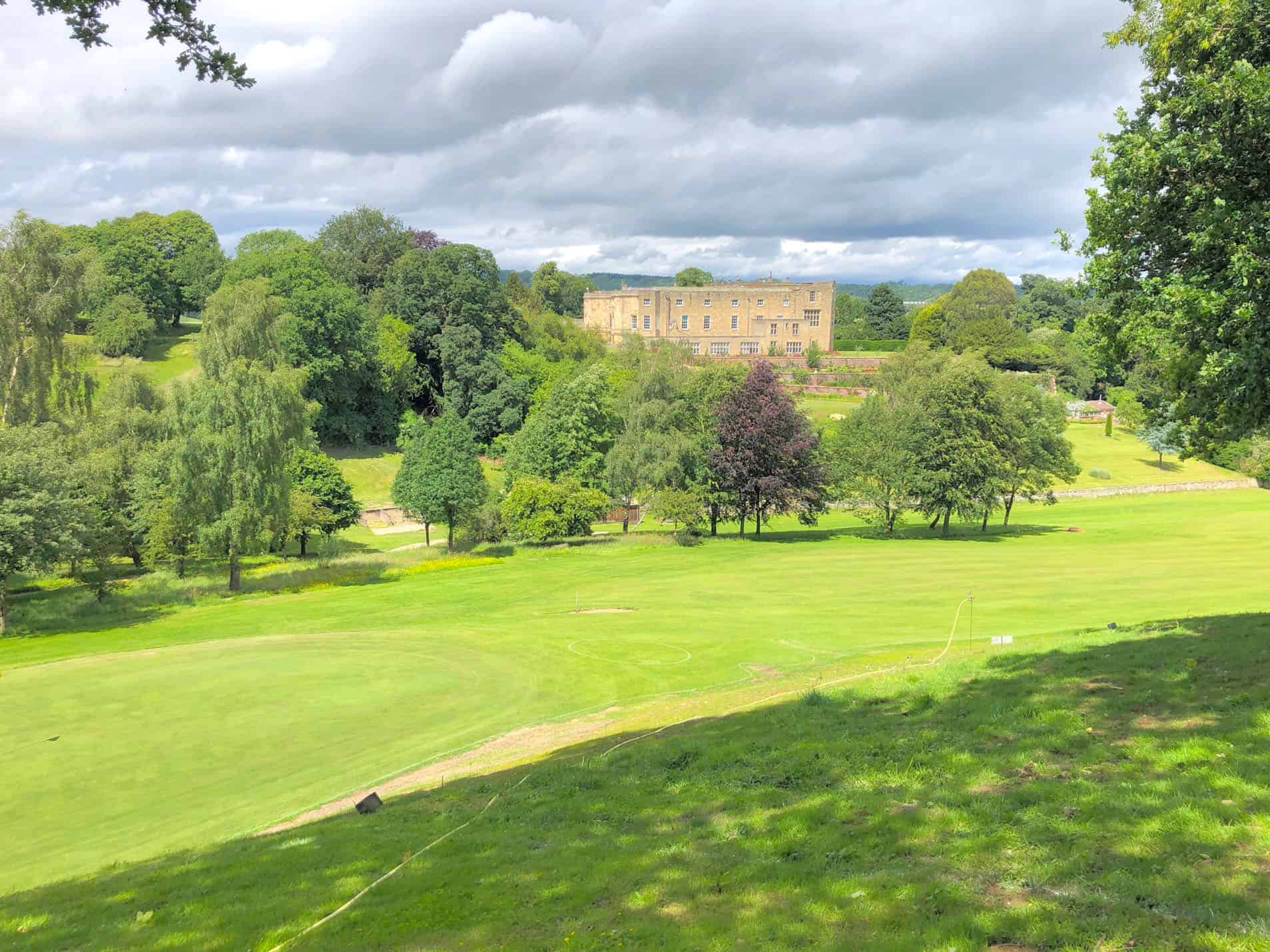
Highly Rated Osprey Hiking Backpacks for Outdoor Enthusiasts
Osprey’s reputation for crafting high-quality hiking backpacks is well-established, offering a range of options that cater to both men and women. The following four backpacks stand out for their excellent sales and customer ratings on Amazon, making them a top choice for outdoor enthusiasts seeking reliability and comfort. As an Amazon affiliate, I may earn a small commission from any purchases made through the links provided. This helps support the upkeep of this website. Rest assured, you won’t pay a penny extra, but your purchase will contribute to keeping my site running smoothly. Happy walking!

Osprey Tempest 20 Women’s Hiking Backpack
The Tempest 20 stands out as the ideal solution for day-hiking, biking, or peak-bagging, tailored specifically for women. It features a panel-loading design for ease of access, complemented by an internal zippered mesh pocket with a key clip for secure storage. Unique to this model are the Stow-on-the-Go trekking pole and LidLock bike helmet attachments, enhancing its versatility. Side stretch mesh pockets, along with an easy-access, expandable stretch mesh harness pocket, offer ample storage. Additionally, it includes a blinker light attachment (light not included) and a large stretch mesh front panel pocket for extra carrying capacity.

Osprey Talon 22 Men’s Hiking Backpack
Designed for the active adventurer, the Talon 22 provides an optimal panel-loading design suitable for day-hiking, biking, or peak-bagging. Key features include dual-zippered panel access to the main compartment and a tuck-away ice ax attachment with a bungee tie-off. It boasts a top panel zippered slash pocket for quick access items and lower side compression straps for load management. An external hydration reservoir sleeve and dual-zippered fabric hipbelt pockets enhance hydration and storage, while a large stretch mesh front panel pocket increases its utility for various activities.

Osprey Tempest 30 Women’s Hiking Backpack
The Tempest 30, designed with a women’s-specific fit, is a streamlined top-loader ideal for both extensive day trips and light-and-fast overnight adventures. It includes a fixed top lid with an external zippered slash pocket and an under-lid zippered mesh pocket with a key clip for organised storage. The pack features a tuck-away ice ax attachment with a bungee tie-off, dual upper and lower side compression straps for load adjustment, and an external hydration reservoir sleeve. For added convenience, it offers an easy-access, expandable stretch mesh harness pocket and dual-zippered fabric hip-belt pockets.

Osprey Talon 33 Men’s Hiking Backpack
The Talon 33 is engineered for dynamic movement, making it the perfect streamlined top-loader for committed day trips or light-and-fast overnight excursions. It features top load access to the main compartment for easy packing and retrieval. The backpack is equipped with a large stretch mesh front panel pocket, Stow-on-the-Go trekking pole attachment, and stretch mesh side pockets for versatile storage options. Additionally, an easy-access, expandable stretch mesh harness pocket and dual-zippered fabric hip-belt pockets offer convenient storage solutions for essential gear.